Founded in 2011, the Bayou distillery (Louisiana) is making its mark on the American market by adopting the codes of whisky, with its 100% local rum (molasses, fermentation, distillation). It’s convincing Americans that a good, pure rum can be enjoyed very well, and not just in cocktails. Bayou has now set its sights on French connoisseurs, who will not be indifferent to this rum with its Cajun flavour.
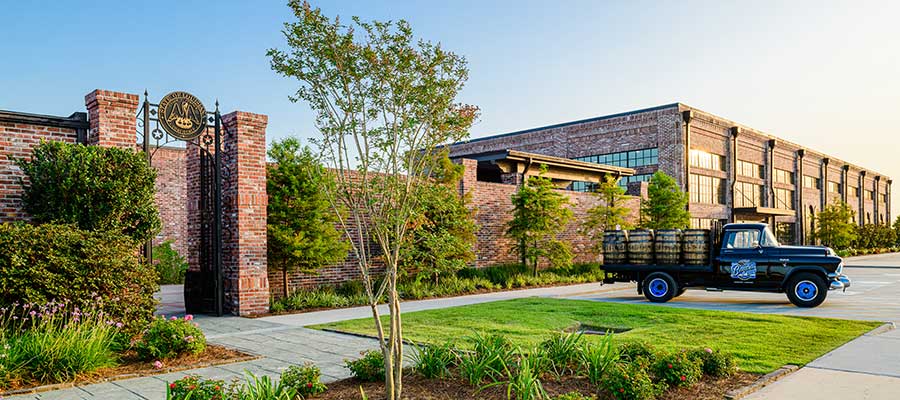
Just imagine if Napoleon I hadn’t sold the Louisiana Purchase to the Americans in 1803… This state of 135,658 km2, with a population of 4.621 million (2021), might still be French (unless, in the meantime, it became independent or became part of the USA on its own) and it might even produce agricultural rum.
Ah, the vertigo of dystopia! But enough daydreaming, Napoleon (then First Consul), who is about to be the subject of a biopic by Ridley Scott (with Joaquin Phoenix in the title role), did sell Louisiana for 15 million dollars at the time. Although French since 1682, this immense territory had never seen any real development. It was too far from the British Thirteen Colonies to the north.
It also regularly came up against the hostility of the native Americans (Comanches, Canzes, Padoucas, Natchez, etc.). In 1708, Louisiana was populated by just 200 inhabitants from Europe. As was the case throughout the New World, the colonists brought in African slaves who had been uprooted from their homelands to work the new land, in particular growing cotton and sugarcane.
Conflicts between European powers were to have a major impact on the French colony, with England taking Florida and Spain Louisiana during the Seven Years’ War (1756-1763). It remained under Iberian control until 1800, when Spain ceded it back to France, which separated from it three years later. In 1812, Louisiana became the 18th American state.
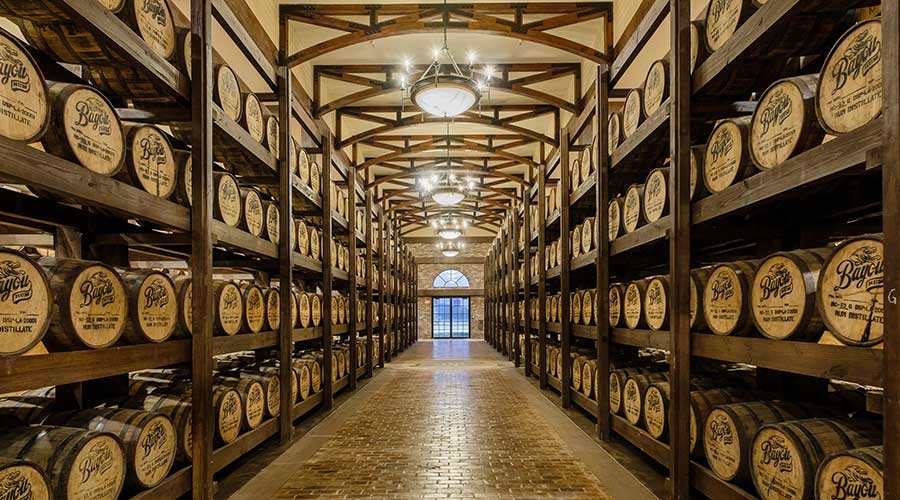
ORIGINAL AMERICAN SPIRIT
Since colonial times, Louisiana has been a major producer of sugarcane. It was also a rum-producing region, just like the USA in its early days. Up until the American Revolution, the Thirteen Colonies produced an enormous amount of rum, using molasses imported from other British possessions (notably Boston).
Rum, and not whisky, was therefore probably the first spirit with an American identity. It was only when this major source of supply was cut off (due to American independence) that rum was gradually replaced by whisky and bourbon. But the process took a long time, so much so that Louisiana was still covered with sugar mills in the 1850s and 60s (1,200 of them!).
And the molasses was of course used to produce rum. After Prohibition (1920s), this activity declined, but Louisiana continued to be at the forefront of sugar cane cultivation in the USA (it still produces half the cane sugar of the 50 federal states). “Rum was the first spirit produced in the USA, not whisky or bourbon, which is why we call it Original American Spirit”, says Reiniel Vincente Diaz, Bayou’s Master Blender.
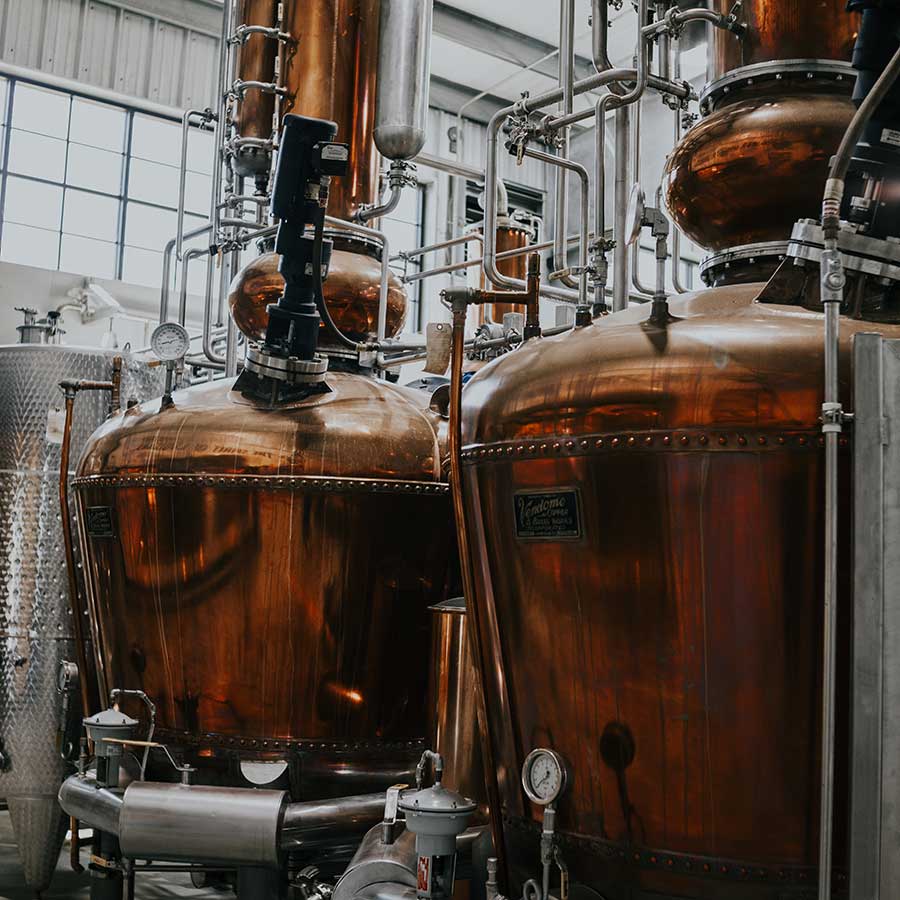
100% LOCAL MOLASSES
So it was only natural that the Bayou distillery should set up in Louisiana, more precisely in Lacassine, 300 kilometres from New Orleans, in 2011. Louisiana’s humid subtropical climate is particularly well suited to growing sugar cane and producing rum. “There’s a huge temperature range between day and night.
Over the course of a day, the temperature can be 5°C in the morning and 30°C in the afternoon. During the summer months, the strong heat comes from the Gulf of Mexico. It’s also very humid, and we’re surrounded by marshes and bayous. It’s a unique environment, ideal for the production of our rums,” explains Reiniel Vincente.
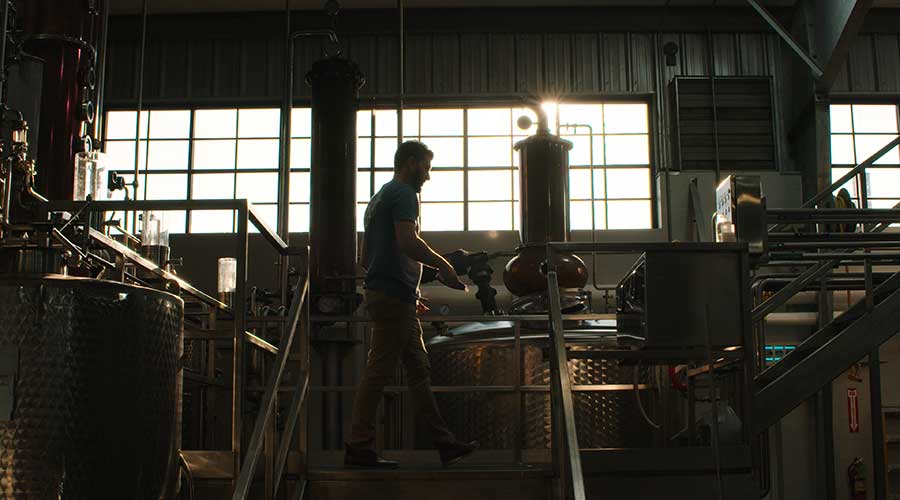
CONTROLLED FERMENTATION
The distillery does not own any sugar cane fields or sugar mills, but buys its molasses from a single operator (in business since 1825!), located an hour’s drive away. Once it arrives at Bayou’s premises, the molasses is pasteurised so that the distillers can be sure that they will always have the same quality product and the same flavours.
The molasses is placed in 4,000-litre vats, where the temperature is raised to 70°C and then lowered to 32°C. Fermentation can then begin using controlled yeasts.
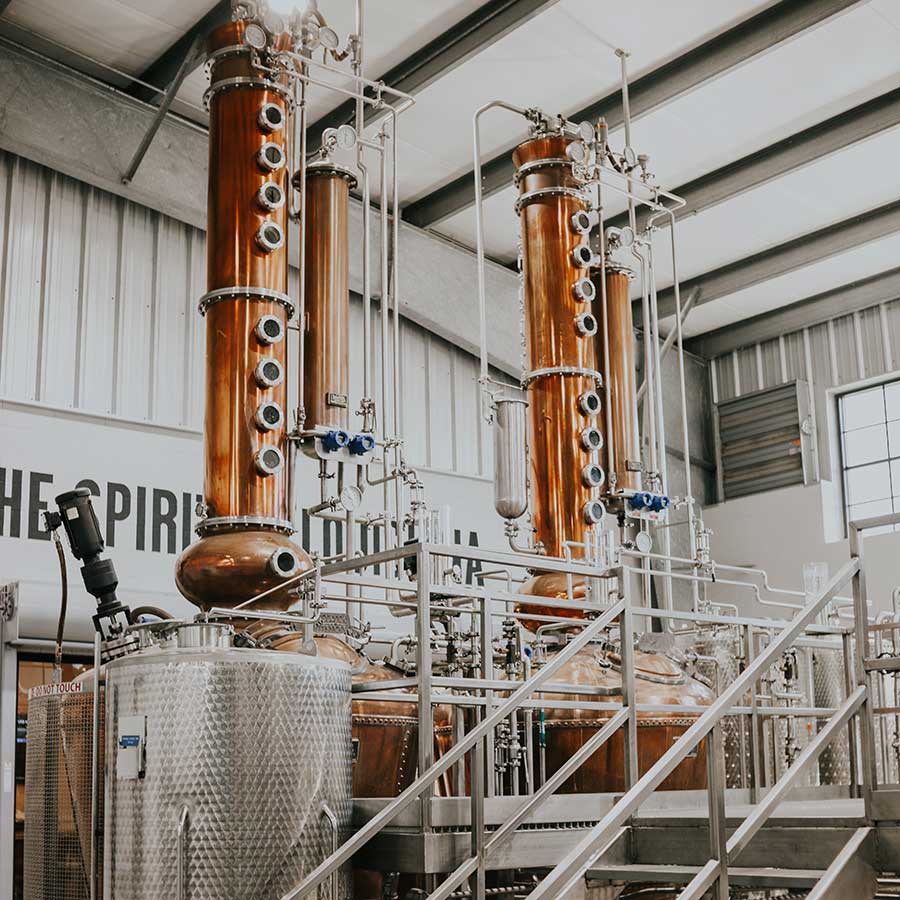
Fermentation takes place in closed vats so that no bacteria can interfere with their work. For the first 24 hours, the temperature remains at 32°C, and for the next four days it drops further to 18°C to give the wine time to mature. “Through fermentation, we look for tropical, fruity and floral notes in our rums,” explains Reiniel.
The result is a molasses wine with 12% alcohol. Distillation then takes place in 100% copper pot stills. From the wash still comes a crude rum with a strength of 40-45%, which then goes through the spirit still. For 1 hour, 1 hour 30 minutes, the heads come out and we don’t use them, then for about 8 hours, the heart comes out, which is sweet, consistent and fruity,” explains Reiniel Vicente.
This is what we use mainly for our rums. And when the bitterness starts to arrive with the tails, we collect them and re-distil them to obtain spicy notes. They are then reintroduced into the final blend”. The result is a light, round rum with an alcohol content of 85-90%, which will be reduced before cask ageing, or bottled at 40% for Bayou White.
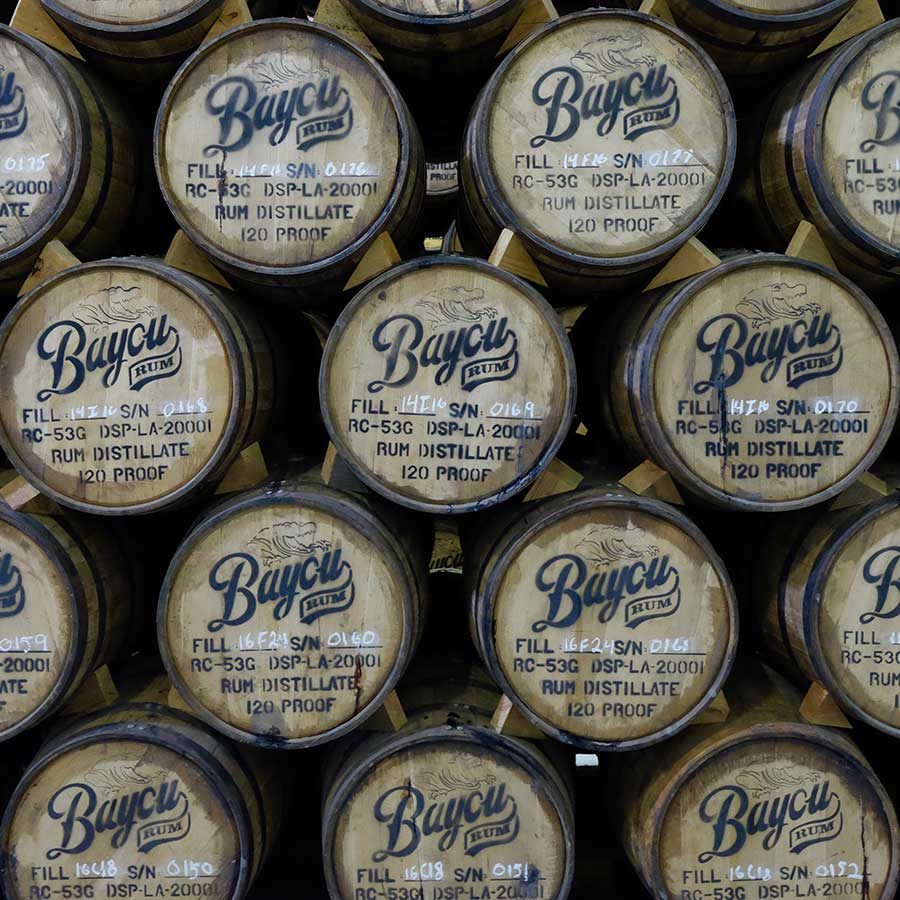
THE EX-WINE CASKS BRAND
“For the ageing process, we choose the most aromatic rums and use a whole range of different casks: bourbon barrels, Rye whisky, cognac, Pedro Ximénez and sherry casks, as well as ex California red wine casks,” explains Reiniel Vincente.
For Bayou Reserve, the juices are aged for up to 4 years in ex-bourbon barrels using the solera method. Here’s how it works: the casks are stored in a pyramid of 5 levels. Only the top level of casks is used to add young rum.
The intermediate rows are topped up by racking from the row immediately above. The solera is the floor level from which the rum is racked for bottling, and is therefore the oldest rum blend (up to 4 years). This method is used to preserve the flavour and specificity of Bayou Reserve over the long term.
The XO Mardi Gras was aged for 5 years in ex-bourbon casks and finished for 1 year in Pedro Ximenez sherry casks. The Single Barrel Red Wine Cask Batch #3 was aged for 5 years in ex-casks of Californian red wine from the Napa Valley.
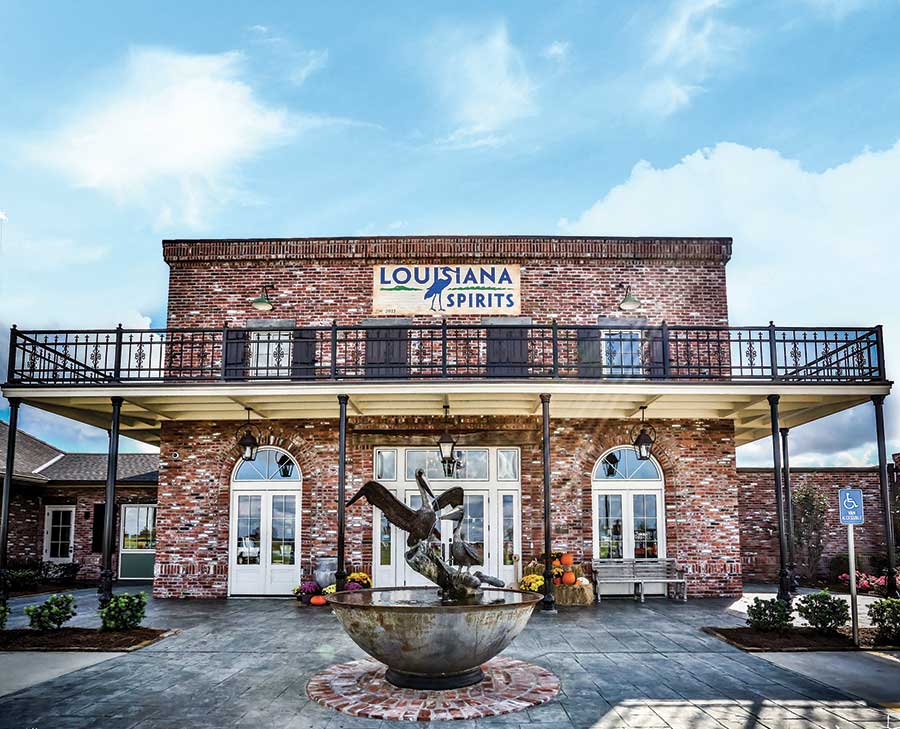
COMPETING WITH BOURBON
When it comes to packaging, the brand stands out for its beautiful screen-printed bottle, reminiscent of whisky or bourbon. We’re in the USA, and Bayou is an American rum that’s primarily designed to appeal to Americans,” explains Reiniel Vincente. Even in terms of taste, our rums are closer to a whiskey than a Caribbean rum.”
So Bayou is positioning itself as an alternative to other quality dark spirits (bourbon, whisky or cognac), with a local rum made with local ingredients. The idea is to introduce the tasting rum category to Americans, who until now have been used to consuming cocktail rums without much personality.
And what about France? “France is the most mature market for super-premium spirits (i.e. over 30 euros, editor’s note), after the USA. French consumers have a great love affair with Louisiana, because it was a French territory for a long time. Even today, French culture is still present, in the family names, the gastronomy…” analyses Reiniel Vincente. French consumers are familiar with rums from the Caribbean, Latin America and even Asia, but not so much with rums from the USA. Bayou, a rum from Louisiana, is a new proposition, a new origin to discover.”
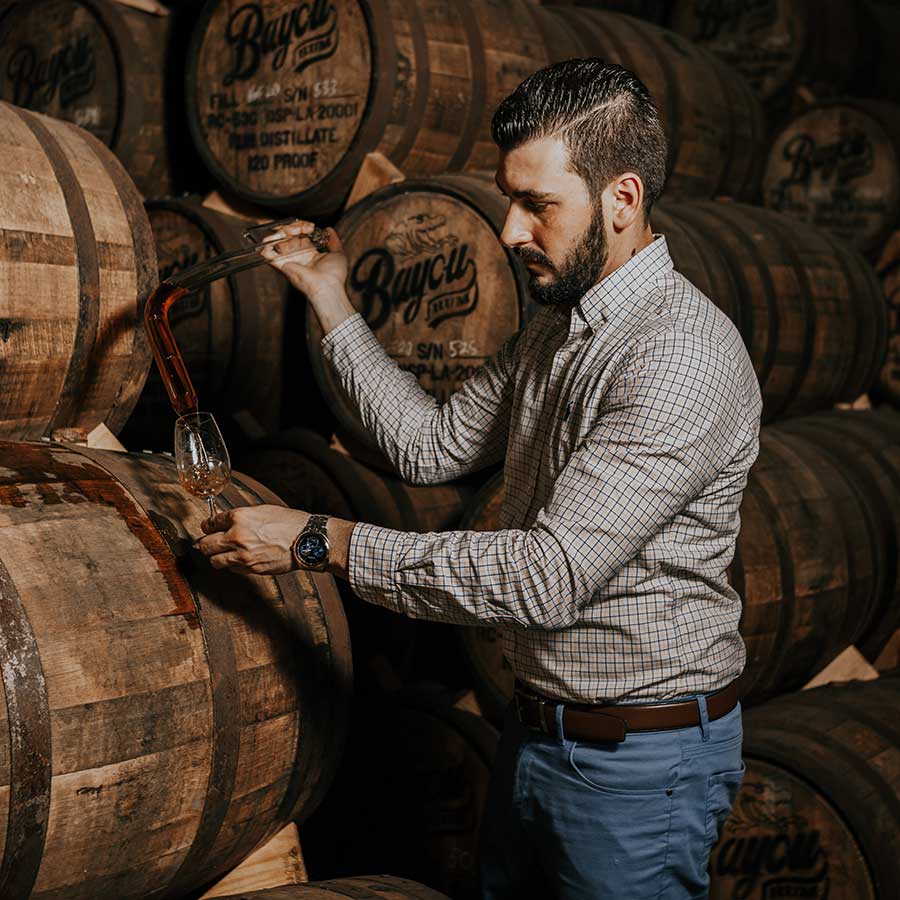
A BRIGHT FUTURE FOR AFICIONADOS
And what does Bayou have in store to continue to arouse the curiosity of aficionados in France, America and elsewhere? Every year Bayou releases a new Single Batch. The first was aged in casks of Kentucky Owl rye whisky, which belongs to the same group (rye whisky) for 2 and a half years.
The second batch was aged in ex-Napa Valley red wine casks for 3 years. The third batch, which is currently on the market, was aged in the same type of casks, but matured for 5 years. “We are currently working on our Single Batch pro- chains with the aim of bringing new tasting experiences to our consumers, while remaining true to our American DNA and that characteristic French influence of Louisiana”, reveals Reiniel Vincente.
